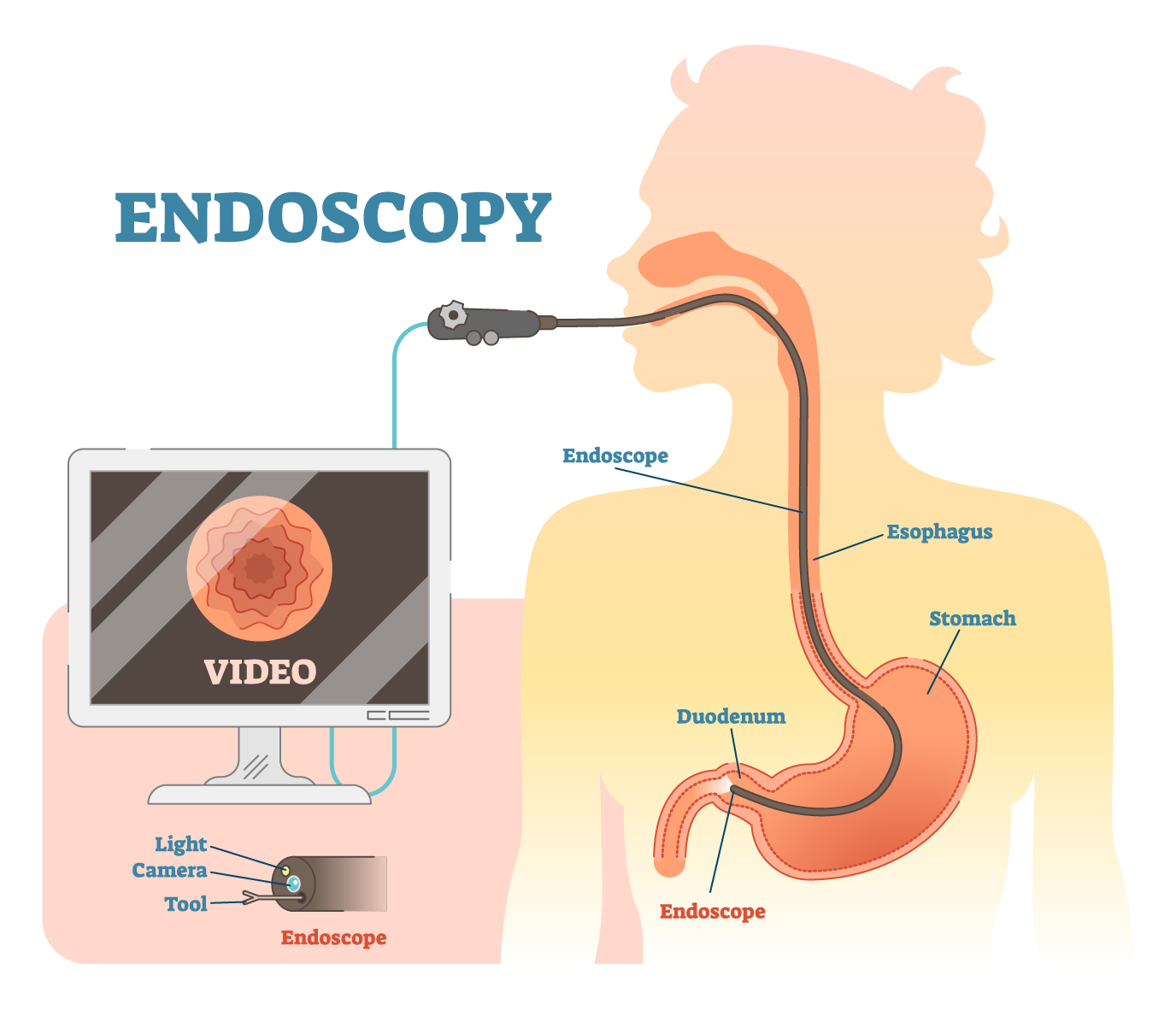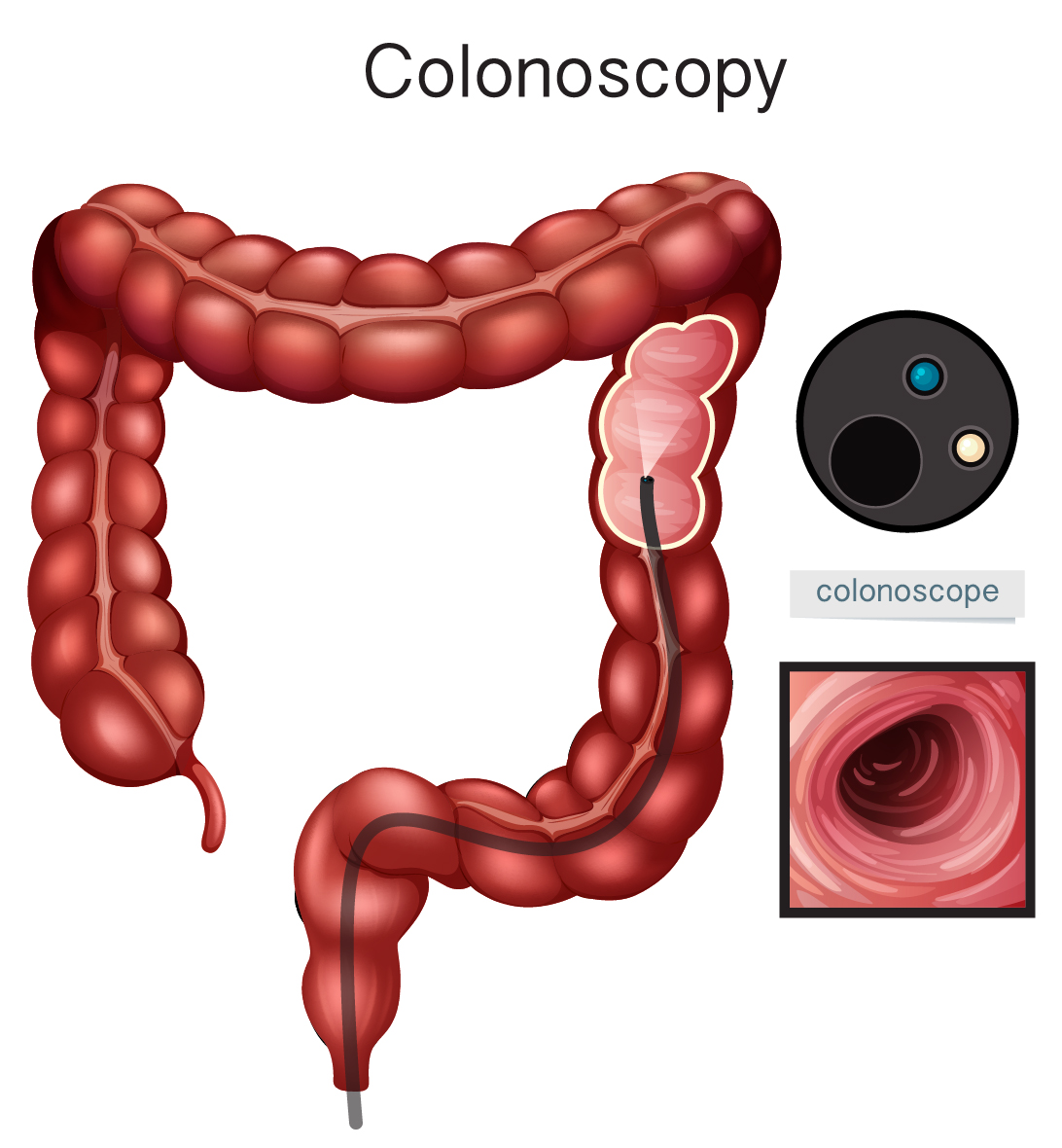

An Endoscopy is also often known as a gastroscopy. This inspects the inside of the top part of your gastro-intestinal tract.
A Colonoscopy inspects the lower part of your gastro-intestinal tract.
Both procedures are very commonly performed in Australia and there are a number of reasons this is necessary. Sometimes these may be obvious to you if you are having worrying symptoms, or otherwise your doctor may need to explain the reason if it is not so obvious (eg. an abnormal blood test). A Surgeon or Gastroenterologist becomes accredited to perform these after undergoing lengthy training and ongoing auditing.




FAQs
How is this procedure undertaken?
This is normally a day procedure. You have a light sedation so you are not aware nor remember the procedure. The endoscopist passes a flexible tube through a mouthguard in your mouth, down the oesophagus to the stomach and duodenum. The images are seen on a TV monitor. Biopsies and other treatments can be performed at the time if necessary. This is a very safe and common procedure.
What happens during a colonoscopy?
This is normally a day procedure and you take bowel preparation at home beforehand in order to clean out the bowel. You have a light sedation so you are not aware nor remember the procedure. The endoscopist passes a flexible tube through your anus and around the length of the colon and views the images on a TV monitor. Biopsies and other treatments can be performed at the time if necessary.
Can I have both a gastroscopy and colonoscopy performed at the same time?
Yes and this is commonly done. The gastroscopy is usually done first and a different flexible tube is used for the colonoscopy which follows.
What are the reasons for having a gastroscopy or colonoscopy?
Gastroscopy is commonly performed for symptoms of upper abdominal pain, problematic indigestion or ongoing reflux. Colonoscopy is commonly performed for bleeding from the rectum, unexplained altered bowel habit, a positive bowel screening result on a stool specimen or for surveillance following previous polyp removal. These procedures aim to look at the internal lining only of the stomach and bowel.
Both procedures are commonly performed together when blood tests show an iron deficiency to make sure there are no signs of bleeding internally.
What should I do now?
It is best to talk to your GP who will discuss with you about seeing a specialist. You will need a referral from them to see Dr Le Page. You can choose a specialist of your choice in discussion with your GP. Dr Phil Le Page has performed many thousand endoscopic procedures and is specialised in this field and welcomes you to attend for a consultation.


